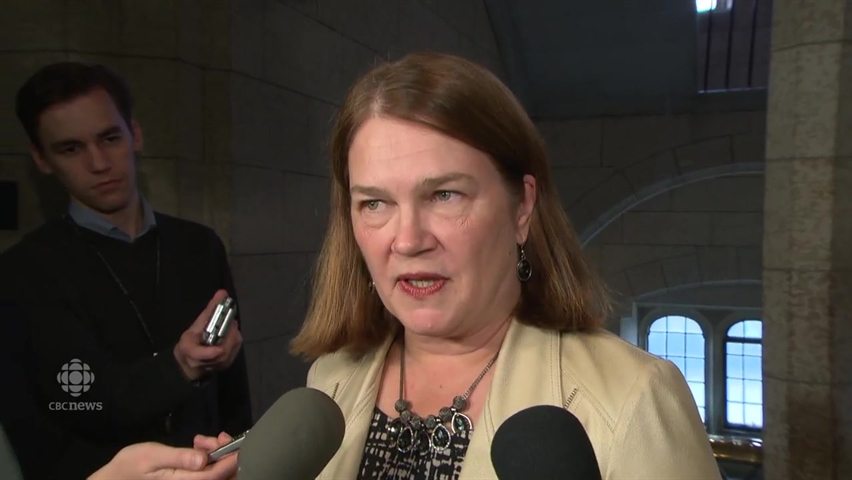
An emotional Health Minister Jane Philpott, brought to tears by her own father’s experience with dementia, suggested Tuesday that the Liberal government plans to support a national strategy to tackle the widespread disease.
“My father is an absolutely amazing person, the wisest and smartest person I’ve ever known and it has affected us a lot because he is not the same person he used to be,” Philpott said outside the Commons.
“It affects my amazing mother who lives with him and takes care of him so I get how much it changes families, how much it affects peoples’ lives and how much we don’t really have great systems in place.”
Dementia is a serious and growing problem, Philpott added, noting it is a pressing issue for other health ministers across the country.
By 2031, it is estimated 1.4 million Canadians will develop dementia – up from 750,000 in 2011.
Philpott conceded much more can be done to tackle the problem, noting the government is receptive to a private member’s bill on the issue which is before the Commons.
Former Conservative cabinet minister Rob Nicholson is sponsor of a piece of legislation that, if passed, would establish a Canada-wide framework for dealing with mental-health conditions like Alzheimer’s disease.
Earlier Tuesday, a Conservative senator suggested Canada is a laggard in addressing dementia as he released a committee report urging national strategy to deal with the problem.
Sen. Kevin Ogilvie, who chaired the Senate’s committee on social affairs, science and technology, said the federal government should spend $30 million a year to ensure a national strategy is properly funded.
As part of talks on the health accord – a joint agreement being negotiated between Ottawa and the provinces and territories – Philpott said the government will be investing in better access to home and community care as part of an effort to help dementia patients.
Click here to read the full story.
Senate News Release: National strategy needed to help dementia patients live independently
Ottawa, November 15, 2016 – A fully-funded National Dementia Strategy is urgently needed to support caregivers, research efforts and Canadians living with dementia.
Members of the Standing Senate Committee on Social Affairs, Science and Technology made 29 recommendations to improve the quality of dementia care and research in Canada in an extensive report released Tuesday called Dementia in Canada: A National Strategy for Dementia-Friendly Communities.
Senators began their study in February 2016 with a mandate to examine existing services, consider the implications of an aging population on future needs and to make recommendations about what role the federal government should play to help Canadians with dementia.
Dementia is a progressive and degenerative condition causing memory loss and the impairment of brain activity. Over time, it robs its patients of the ability to live independently. In its early stages, patients are able to live on their own, but as the disease progresses, many require some form of assisted living. There is no cure and little treatment to slow its progression.
Canadians with dementia are able to live independently in their own homes, but need help coping with a disease that often makes them want to shut themselves off from the world.
A National Dementia Strategy would help to ensure adequate care and supports are available to people living with dementia and that appropriate housing options are available for patients.
It would also make available funding for research and disease management as scientists work towards new treatments.
Click here to view the full release.





